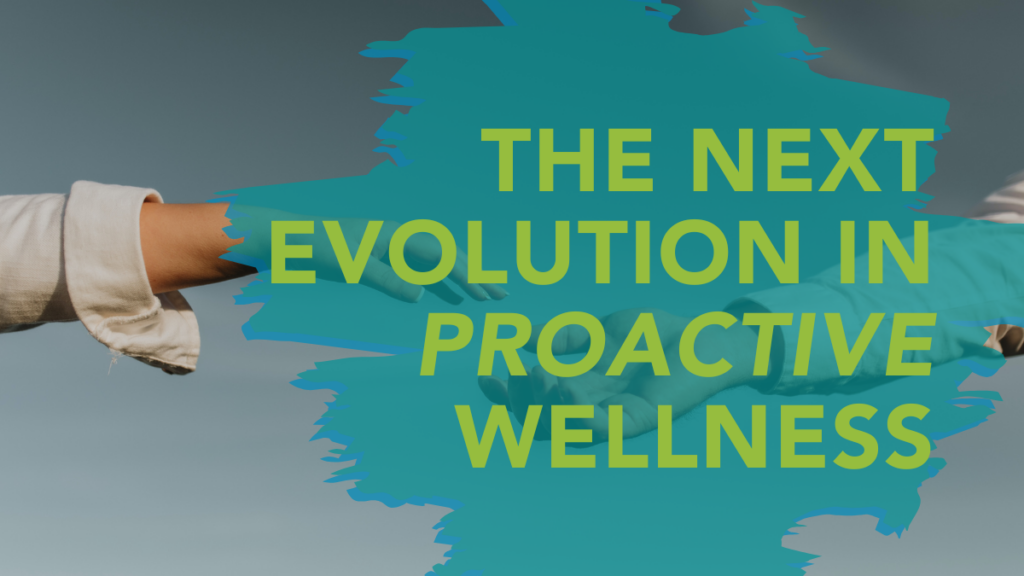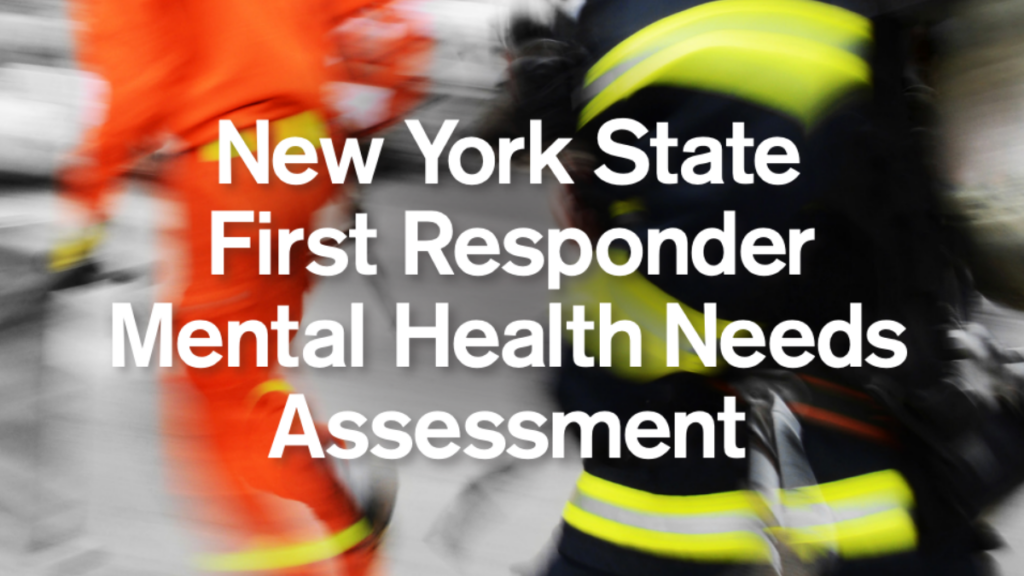Seven Wellness Program Approaches Every Law Enforcement Agency Should Evaluate
Posted
March 30, 2025
Share:
The seven program categories outlined in this document represent key areas departments should evaluate based on research and emerging practices. Some show promising results—like the Seattle Police Department’s fatigue management training, which delivered measurable improvements in sleep quantity and significant reductions in depression, anxiety, and PTSD symptoms (James et al., 2024). However, most initiatives lack rigorous evaluation.
Police departments across the country are implementing wellness initiatives, but many lack data to show what actually works. The Benjamin Center’s research reveals that while 23% of agencies have comprehensive wellness programs, 62% still offer none at all (Benjamin Center, 2025). This gap highlights a critical need for evidence-based approaches to officer wellness.
As a Wellness program leader or Chief of Police, you need more than participation numbers to justify wellness investments. Your department deserves programs with proven impacts on officer health, performance, and retention. This resource offers starting points for evaluating wellness initiatives in seven essential categories while emphasizing the importance of data collection to determine what works for your agency.
1. Mental Health and Psychological Support
Clinical Services Professional psychological and counseling services delivered by culturally competent providers who understand law enforcement challenges. These services include individual therapy, crisis intervention, and specialized support for trauma, depression, anxiety, and PTSD.
- Embedded Psychologists Program – Psychologists who ride along with officers, building trust and understanding of the job while providing on-site support and intervention (e.g., Bend Police Department’s model since 2015).
- Behavioral Sciences Unit – Dedicated department unit staffed by mental health professionals and peer officers (e.g., Tucson PD’s longstanding unit that combines clinical and peer approaches).
Peer Support Networks Officer-to-officer support programs utilizing trained department members who provide confidential assistance to colleagues experiencing personal or professional difficulties. These programs create accessible, stigma-free pathways to help.
- Intensive Peer Mentoring – Experienced officers mentor recruits and newer officers through critical early career phases (e.g., Indianapolis Metro PD’s program with over 100 seasoned officers mentoring recruits).
- Peers as Law Enforcement Support (PALS) – Structured peer counseling with confidentiality protections, utilizing evidence-based techniques and protocols.
Critical Incident Response Structured support systems activated after traumatic events such as shootings, officer injuries, or deaths. These programs provide immediate and follow-up care to mitigate acute stress and prevent PTSD.
- Multi-Tiered Crisis Response Teams – Combined approach using psychologists, chaplains, and peer supporters to provide comprehensive post-incident support (e.g., Phoenix PD’s Critical Incident Stress Management Unit).
- Mandatory Post-Incident Protocols – Structured procedures that normalize seeking help after critical incidents, including scheduled check-ins at 24 hours, 7 days, and 30 days post-incident.
2. Physical Wellness and Health Management
Fitness Programs Structured initiatives to promote physical fitness, prevent injuries, and support overall health through regular exercise, equipment access, and fitness incentives.
- On-Duty Fitness Hour – Scheduled time during work hours for physical fitness activities (e.g., Bend PD’s program that led to a documented 40% reduction in on-the-job injuries).
- Fitness Incentive System – Performance-based rewards such as additional leave time or recognition for meeting fitness standards and goals.
Injury Prevention and Recovery Programs focused on identifying and addressing physical vulnerabilities, providing rehabilitation services, and facilitating return to duty after injuries.
- Early Intervention Physical Training – Targeted conditioning for new officers paired with mentors to reduce initial injury risk (e.g., Indianapolis Metropolitan PD’s approach).
- Job-Specific Conditioning – Tailored exercise programs addressing the physical demands of specific assignments (patrol, tactical, investigations) to prevent occupation-specific injuries.
Nutrition and Dietary Support Guidance and resources to promote healthy eating habits, understanding the relationship between nutrition and mental performance, particularly considering shift work challenges.
- Station House Nutrition Program – Healthy food options at facilities and shift-appropriate meal planning resources.
- Nutritional Counseling Partnerships – Access to registered dietitians through EAP or health insurance programs who understand unique challenges of law enforcement schedules.
3. Sleep and Fatigue Management
Sleep Optimization Programs Educational and practical interventions to improve sleep quality and quantity, particularly for shift workers, addressing one of the most significant health challenges in policing.
- Sleep Science Training – Research-based education on sleep physiology, hygiene practices, and strategies for shift workers (based on the Seattle Trauma Study showing 18 additional minutes of sleep per night).
- Sleep Disorder Screening – Identification and treatment pathways for conditions like sleep apnea, insomnia, and shift work disorder that are prevalent in law enforcement.
Shift Management Strategies Structured approaches to creating work schedules that minimize fatigue, promote recovery, and reduce safety risks associated with extended shifts.
- 10-Hour Shift Implementation – Research-supported scheduling that provides more recovery time between shifts (shown to yield 150+ hours more sleep per officer annually).
- Forward-Rotating Shifts – Circadian-friendly scheduling that transitions from day to evening to night shifts rather than backward rotation.
Fatigue Risk Mitigation Tactical approaches to manage acute fatigue and prevent fatigue-related accidents, errors, and health issues during and after shifts.
- Rest Period Enforcement – Mandatory recovery time after extended shifts, overtime, or secondary employment.
- Drowsy Driving Prevention – Targeted interventions to address the 45% of officers who report falling asleep while driving, including safe transportation options after long shifts.
4. Family and Relationship Support
Family Education and Orientation Programs that prepare and support officers’ families for the unique challenges of a law enforcement career, building resilience in the home environment.
- Family Academy – Educational programs for spouses/partners and children about the nature of police work and its effects (e.g., Tucson PD’s “Family Day” for academy classes).
- Spouse’s Forum – Structured curriculum addressing communication challenges, shift work impacts, and recognizing stress symptoms (modeled after the FBI National Academy program).
Relationship Resources Support services targeting the health of officers’ personal relationships, recognizing that stable home lives contribute significantly to on-the-job performance.
- Marriage and Family Counseling – Specialized therapy services that understand the unique stressors affecting police families.
- Couples Resilience Training – Skill development for maintaining healthy relationships despite the challenging aspects of law enforcement careers.
Family Inclusion Initiatives Programs that actively involve family members in department activities and wellness resources, creating a culture that acknowledges the whole family serves.
- Family Wellness Events – Department-sponsored activities that build community among law enforcement families.
- Family Access to Support Services – Direct pathways for family members to access resources independent of the officer.
5. Financial Wellness
Financial Education Programs that provide officers with knowledge and skills to manage personal finances, navigate benefits, plan for retirement, and reduce financial stress.
- Career-Stage Financial Planning – Targeted guidance for new officers, mid-career personnel, and those approaching retirement.
- Law Enforcement-Specific Financial Workshops – Programs like “Building Financial Strength in First Responder Families” that address the unique financial challenges of police careers.
Debt and Crisis Management Resources for officers experiencing financial difficulties, preventing escalation of financial stress into personal crisis or misconduct risks.
- Financial Counseling Services – Confidential one-on-one guidance for officers dealing with debt, foreclosure risk, or other financial emergencies.
- Emergency Assistance Funds – Structured support for officers facing unexpected financial hardships.
Retirement Preparation Long-term planning resources ensuring officers are prepared for life after law enforcement, addressing both financial security and psychological transition.
- Pension and Benefits Education – Comprehensive explanation of retirement systems, healthcare options, and financial planning.
- Second Career Exploration – Resources for identifying post-policing career options and managing the identity transition from active-duty officer.
6. Spiritual and Moral Support
Chaplaincy Services Faith-based and spiritual support systems that provide confidential emotional counsel, presence during crises, and support for officers regardless of religious affiliation.
- Chaplain Ride-Along Program – Department chaplains who regularly patrol with officers to build relationships and provide real-time support.
- Multi-Faith Chaplaincy Corps – Diverse team of chaplains representing various traditions to meet the needs of all department members.
Meaning and Purpose Resources Programs addressing the deeper aspects of police work, focusing on vocational calling, ethical challenges, and maintaining a sense of purpose through career difficulties.
- Moral Injury Support – Resources addressing the psychological impact of situations that conflict with officers’ moral beliefs or sense of justice.
- Service Recognition Programs – Regular acknowledgment of the positive community impact officers make through their work.
Mindfulness and Resilience Practices Evidence-based methods for managing stress, improving focus, and developing emotional regulation skills that enhance performance under pressure.
- Mindfulness-Based Resilience Training – Structured program combining meditation, breathing exercises, and cognitive resilience building.
- Comfort Animal Program – Station dogs or therapy animals that provide stress relief and emotional support (e.g., East Lansing PD’s therapy dog program).
7. Organizational Culture and Leadership
Wellness Leadership Training Programs that equip supervisors and command staff to recognize signs of distress, facilitate appropriate interventions, and create supportive environments.
- Supervisor Mental Health Recognition Training – Education for leadership on identifying early warning signs of psychological distress.
- Guided Conversation Protocols – Structured frameworks for having supportive check-in conversations with officers (using procedural justice principles).
Policy and Structural Support Formal policies, procedures, and infrastructure that institutionalize wellness as a core value and operational necessity rather than an optional add-on.
- Dedicated Wellness Units – Formally established bureaus or divisions focused specifically on officer wellness (with protected funding and staffing).
- Wellness Integration into Performance Metrics – Inclusion of wellness activities in departmental and individual performance evaluations.
Stigma Reduction Initiatives Targeted efforts to change the culture around help-seeking behavior, normalizing mental health care as a form of professional strength rather than weakness.
- Leadership Modeling Program – Command staff openly discussing their own wellness practices and mental health experiences.
- Strategic Messaging Campaign – Regular department-wide communications destigmatizing mental health support and highlighting success stories.
Related Posts
Ready to Experience the Benchmark Difference?
Benchmark Analytics and its powerful suite of solutions can help you turn your agency’s challenges into opportunities. Get in touch with our expert team today.



